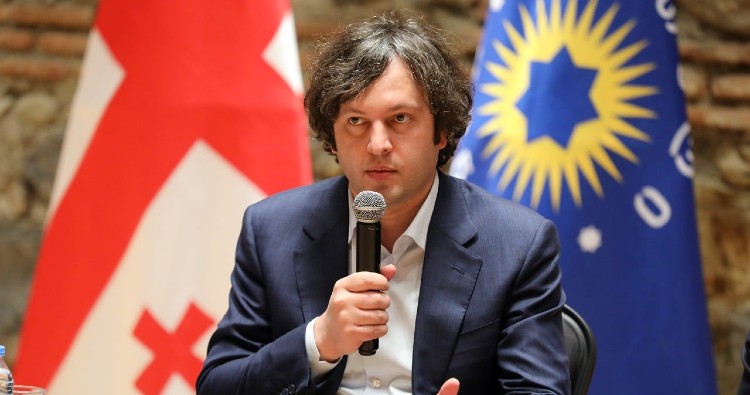Ruling party head highlights “optimistic expectations” on EU candidate status

Kobakhidze claimed the domestic public "knew very well” that "when a country receives the status, the Government receives this status together with the citizens, and the citizens receive the status together with the Government”. Photo: Georgian Dream Press Office
Irakli Kobakhidze, the Chair of the ruling Georgian Dream party, on Thursday said the party had “optimistic expectations” regarding the country being granted the European Union membership candidate status.
In his comments ahead of the European Commission report this month on the Government's efforts to meet the conditions for the status, Kobakhidze said a "change of rhetoric" by a part of the domestic opposition and some non-governmental organisations was an “indication” of the basis for the optimism.
In a few days, the opinion of the European Commission regarding the candidate status will be published. After that, the final decision of the European Council will be made in about a month. We have optimistic expectations about all this, everything is moving towards the country being granted candidate status”, Kobakhidze said.
“The fact that opposition and NGOs have changed their rhetoric is also an indication that we are very likely to be granted candidate status. You remember how these parties, NGOs tried [and] did everything to prevent the country from receiving the candidate status. They told the European Commission that the country had implemented only two recommendations [out of 12]” the ruling party head continued.
Kobakhidze claimed the domestic public "knew very well” that "when a country receives the status, the Government receives this status together with the citizens, and the citizens receive the status together with the Government”.
He also added the "narrative of separation” of citizens and the Government in assessments on the status had been "promoted by certain foreign politicians and diplomats", which he said was “also gradually changing", crediting "respective diplomats and politicians” with the outcome.
 Tweet
Tweet  Share
Share